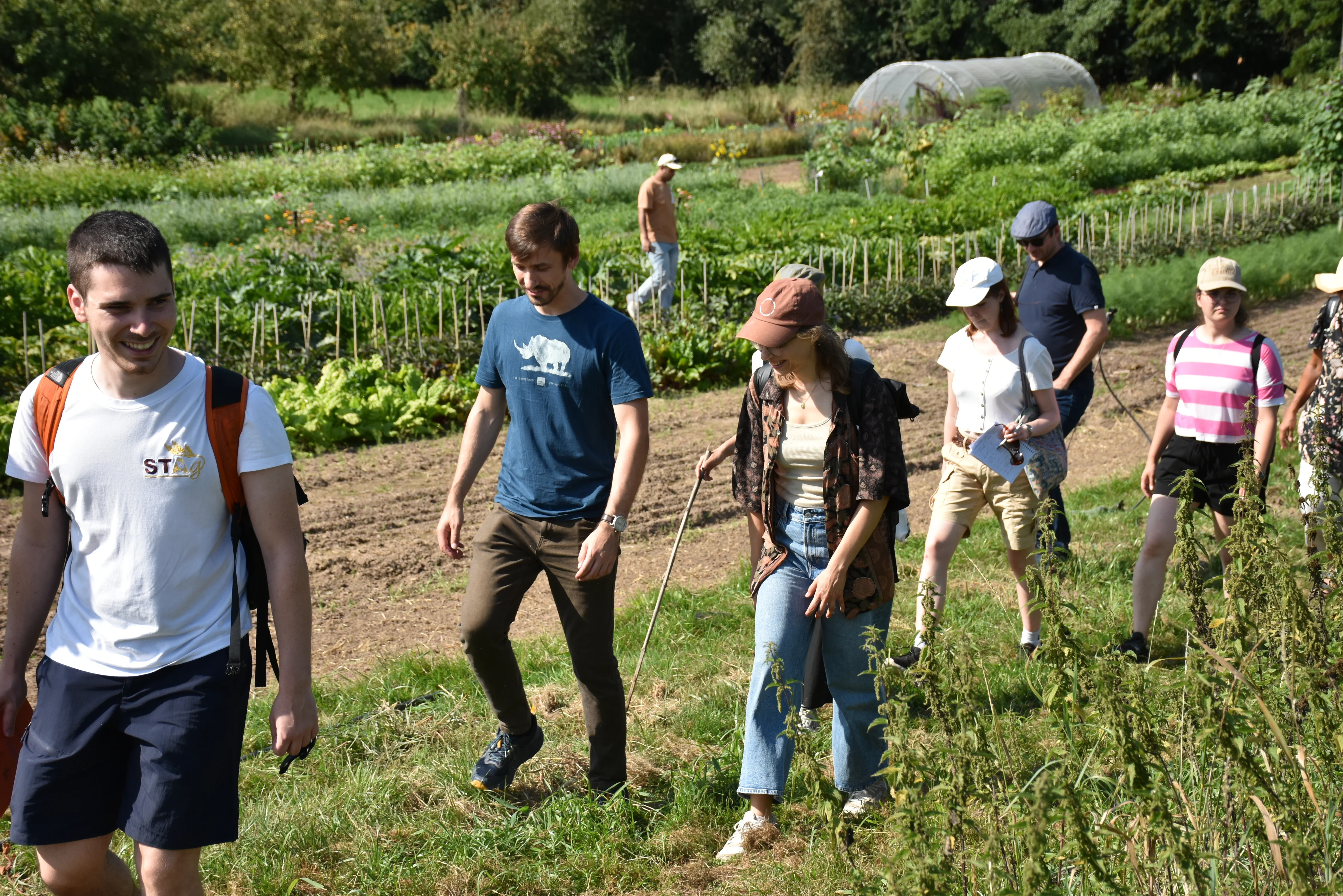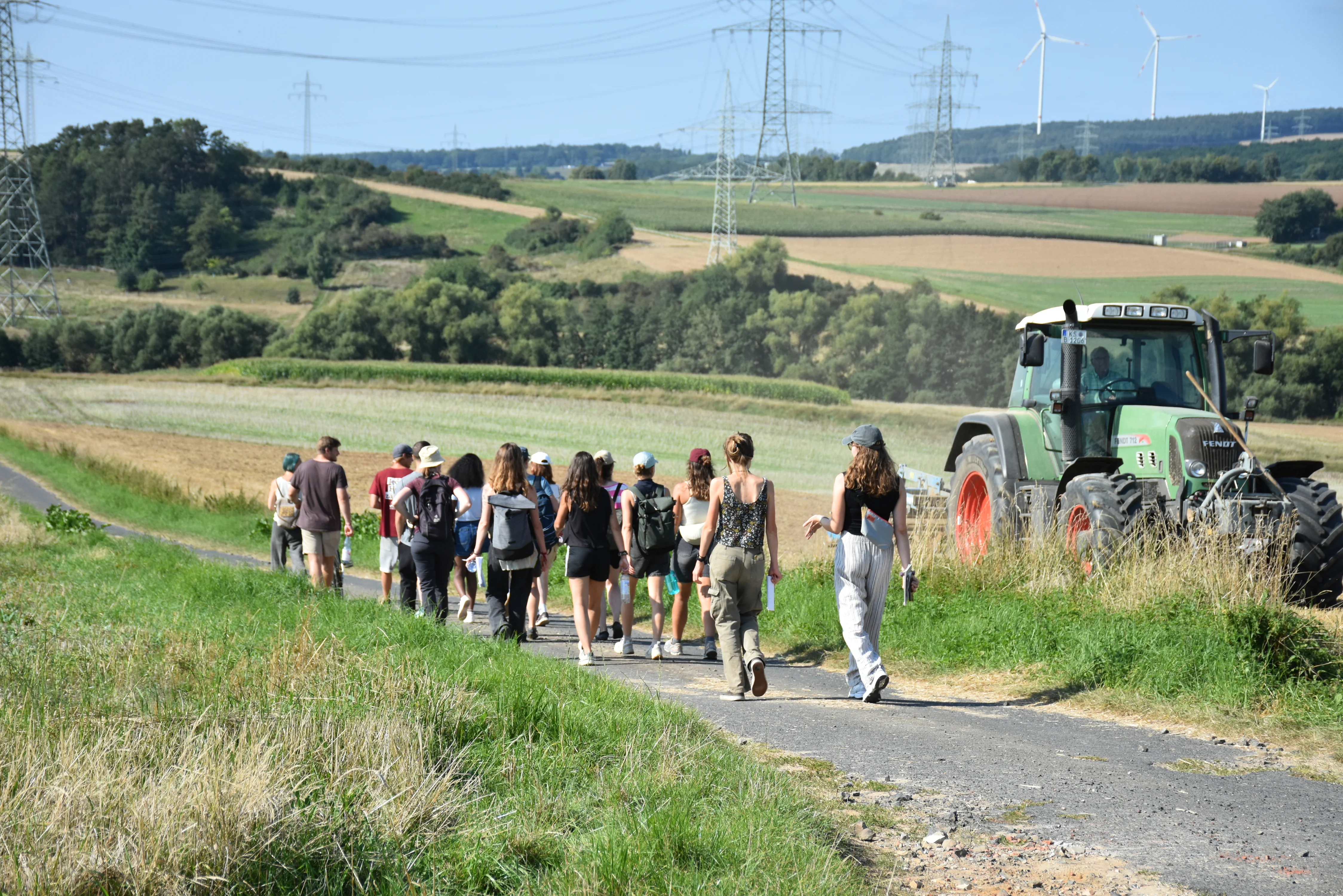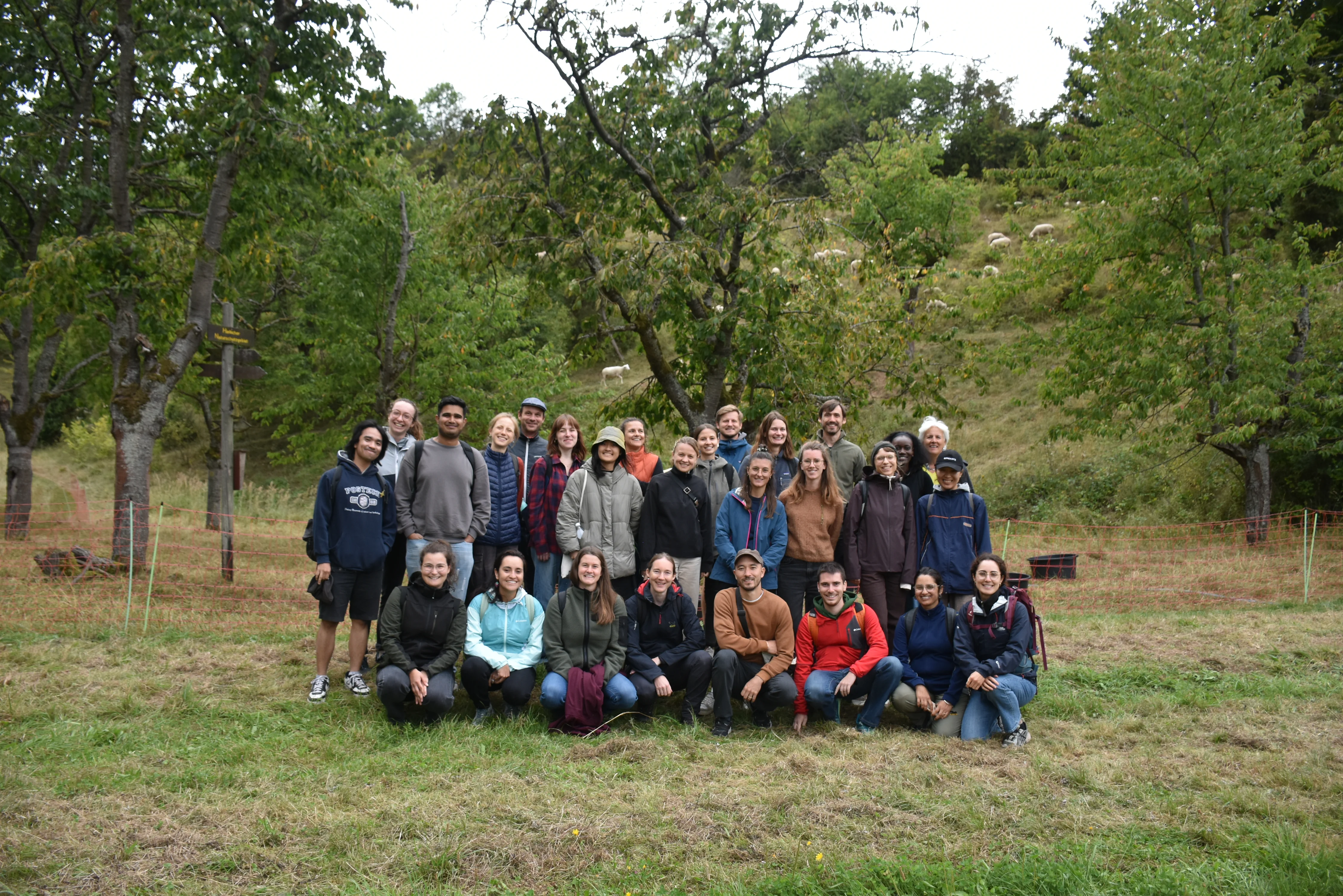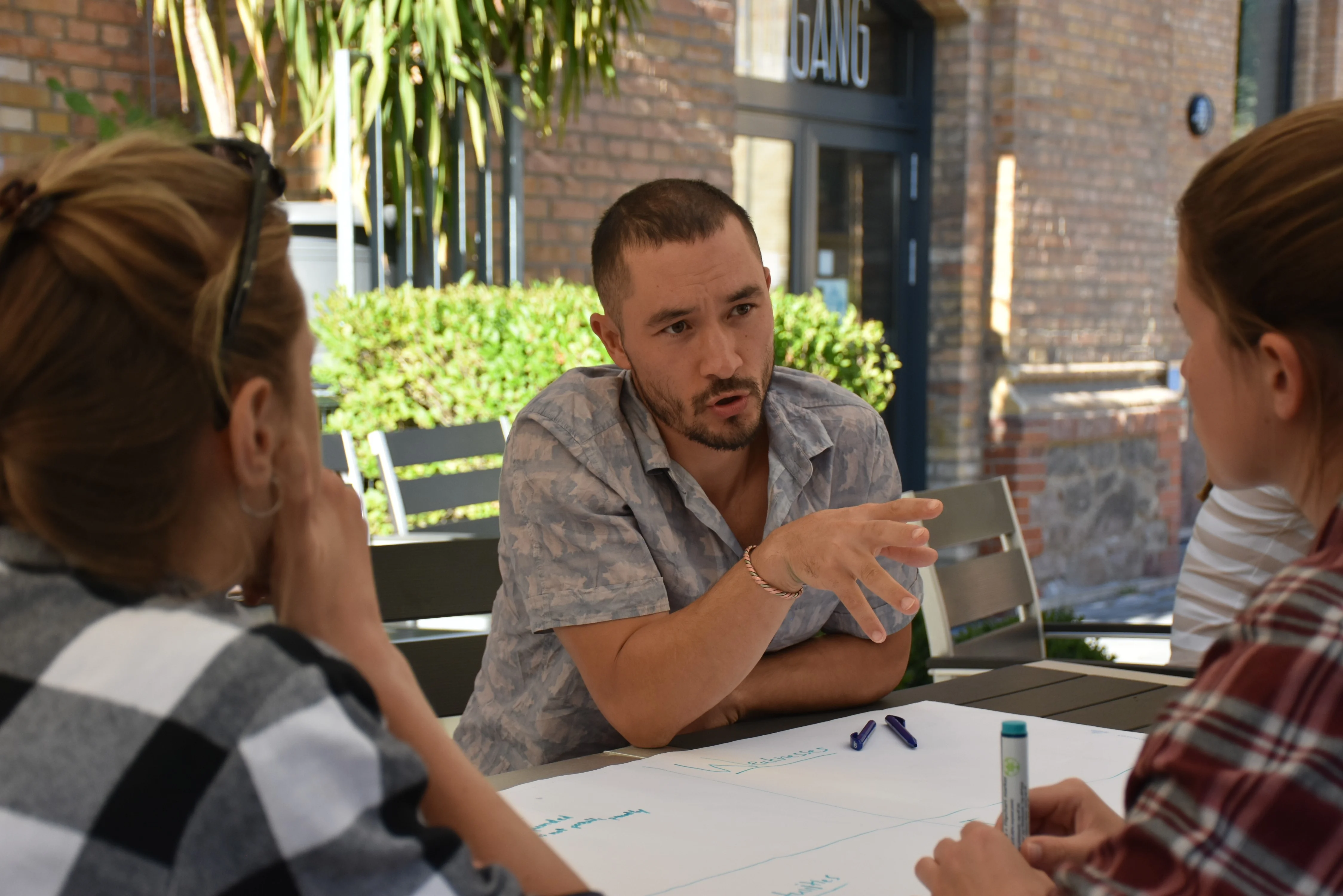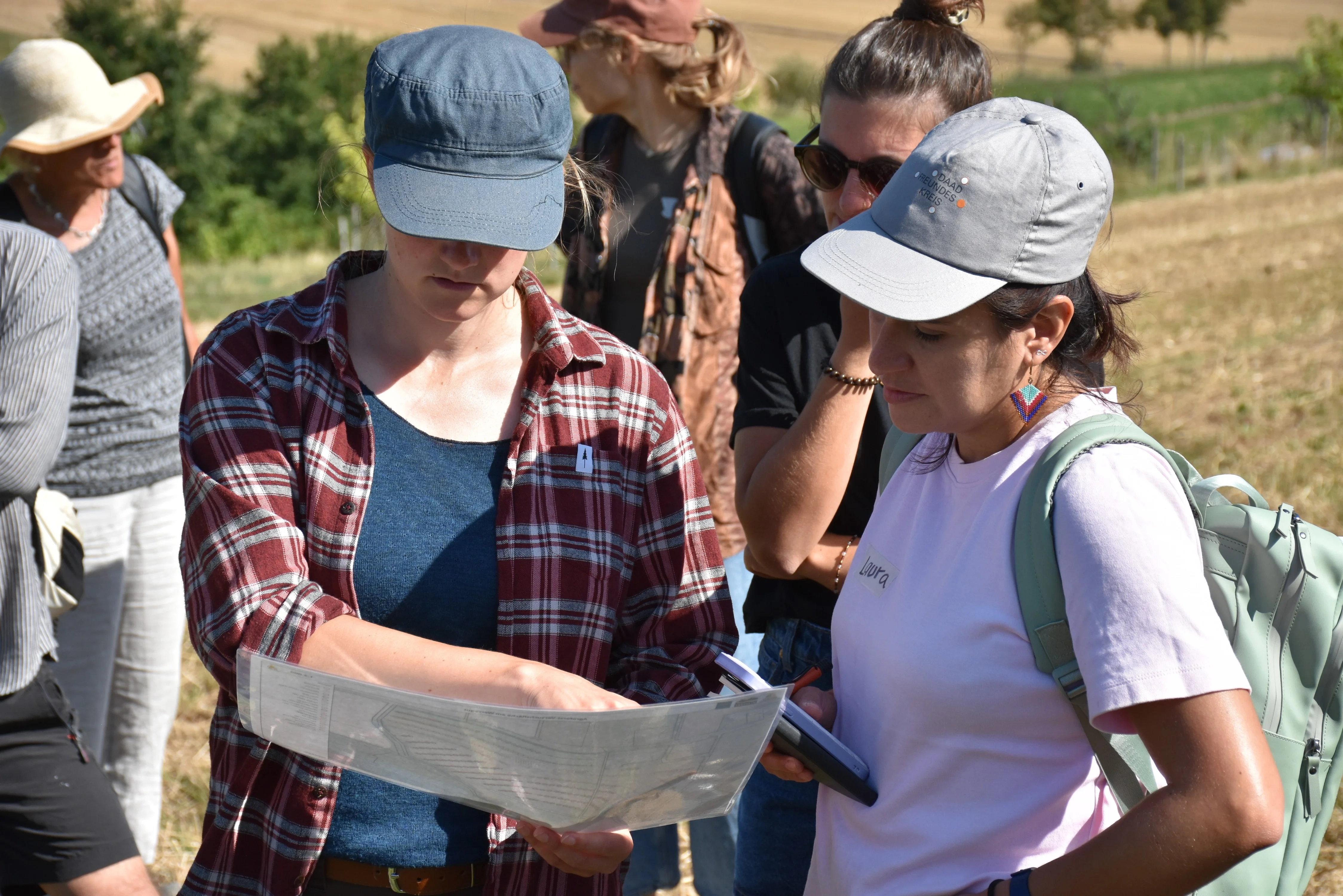Summer School in Germany: Experiencing agrobiodiversity in a practical and interdisciplinary way
During this year’s International Agrobiodiversity Summer School, 23 students from over 10 countries explored the complex world of agrobiodiversity through practical insights, field visits, and inspiring projects across Central Germany.
The Summer School was organized by the ZHAW research group Geography of Food and the Research Institutes of Organic Agriculture in Switzerland and Germany (FiBL). Participants not only examined the vital role of agrobiodiversity in building resilient and sustainable food systems but also deepened their understanding of local agricultural structures and the historical differences between East and West Germany. They had the opportunity to explore a range of inspiring cases that highlight the many ways in which agriculture and biodiversity are intertwined. Some examples included:
- The visit to the impressive agroforestry system of Werragut, featuring over 15 species of trees and shrubs.
- The project “Schaf schafft Landschaft” (“Sheep shape landscapes”), that demonstrates how extensive sheep grazing helps preserve species-rich grassland habitats in the Geo-Naturpark Frau-Holle-Land.
- At Hof Tolle, students witnessed climate adaptation in action, gaining insights into innovative practices like mob grazing and crop diversification with chickpeas and soybeans.
- At the Kaufungen vegetable farming collective, students learned about innovative forms of farm management and community living.
Working in interdisciplinary and intercultural teams, the students developed forward-looking strategies to promote and preserve agrobiodiversity in various contexts over the course of ten days. They learned that there are no one-size-fits-all solutions with regard to agrobiodiversity and that measures must always be tailored to the specific local conditions and context. Promoting agrobiodiversity is multifaceted and requires meaningful collaboration from a variety of actors.
A heartfelt thank you to our project partners FiBL Germany and FiBL Switzerland for their invaluable support in organizing this Summer School! More information about the different case studies that the students worked on and their experiences can be found on our blog: Eat Grow Change - A Blog of the ZHAW Zurich University of Applied Sciences
Next year’s edition will take place in Galicia, Spain and applications open in November/December.
